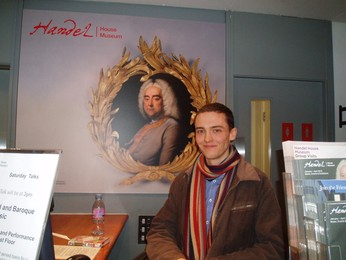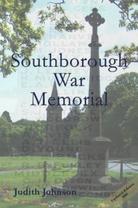
Last year my son and his girlfriend treated me to the David Hockney exhibition at the Royal Academy, and this year Martin and I took the train up to Charing Cross and set off for two museums that had been on my wish-list for years.
I have loved Handel's music all my life. Whenever I have heard a piece of music and found it going straight to my heart, it has nearly always turned out to be something by Mr George Frideric Handel. I heard with keen interest a documentary on Radio 4 some twelve years ago about the renovation and opening of the Handel House Museum at 25 Brook Street, and have been meaning to visit ever since. Handel bought the house when it was new-build, in 1723, and lived there until his death in 1759. He loved London and its vibrant life.
The curators of the museum worked hard to re-create the house as it might have looked in his time. However, it's not one of those interactive museums that knock themselves out to present everything in glorious interactive/3D/audio-visual technicolour. I visited a renovated museum like that last year in Belgium, and I felt that all the newly high-tech, computerised, chip-activated displays and professionalised testimonials had somehow contextualised the heart out of the content.
The Handel House Museum, on the other hand, allows lovers of Handel and his music to honour their devotion by wandering quietly around his home, soaking up the atmosphere. Okay, it's probably not his own furniture, paintwork, and canopied bed that you're seeing, but it is, as much as can be achieved, a faithful rendering of his house as he might have known it. I was especially moved to sit quietly in his bedroom, where he would have slept, and likely died. Next to this is his dressing-room, and downstairs the rehearsal and performance room. On the day we visited, we were fortunate enough to hear the group Le Jardin Secret, rehearsing for their concert the next day at Powis Castle in Wales, part of BBC
Radio 3's Baroque Spring season. The notes for the room inform the visitor that "watching the rehearsals was probably quite an experience, according to the hair-raising anecdotes. Those present would have witnessed not only the real first performances of Handel's works but also the spectacle of the composer swearing at the frequently headstrong singers - usually in several languages. Handel seems to have had little patience with his singer's egos."
There was also the opportunity to see the Composition Room, believed to be the room where Handel composed some of his most famous works, including Zadok the Priest, Music for the Royal Fireworks, and Messiah.
In the adjoining rooms we found a fascinating exhibition about Charles Jennens, librettist of Messiah, and, intriguingly, a peep up the back stairs towards the flat where Handel's famous 20th century neighbour Jimi Hendrix lived!
Learning new things is food and drink to me. I'm the sort of person who studiously peers at information panels. Like my late Aunty Janet, I always have a notebook and pen in my handbag to jot down interesting nuggets for future reference! I read that the original production of Handel's Rinaldo included a flock of live sparrows; that Charles Burney, father of authors Fanny and Sarah Burney, wrote: "The figure of Handel was large and he was somewhat corpulent and unwieldy in his motions; but his countenance, which I remember as perfectly as that of any man I saw but yesterday, was full of fire and dignity; and such as impressed ideas of superiority and genius. He was impetuous, rough and peremptory in his manners and conversation, but totally devoid of ill-nature or malevolence." I also learned that Beethoven was a great admirer of Handel and had once said of him: "Handel was the greatest composer that ever lived. I would uncover my head, and kneel before his tomb."
I was most saddened though to discover that Handel, having gone blind by the end of 1752, endured a painful operation in August 1758 in Tunbridge Wells, Kent in the hopes of restoring his sight. This was performed by a man since regarded as a charlatan, the 'opthalmiater' John Taylor. Like Taylor's similar 1749 operation on JS Bach, it was not a success.
I beetled down to the Tunbridge Wells Reference Library on my return, and read in Arthur Brackett's Tunbridge Wells Through the Centuries that "Handel, when busy with oratorio work, occasionally came here to invigorate himself with a course of the waters".
It was here that the Tunbridge Wells Ladies' Music Circle gave a disastrous performance of Handel's oratorio Messiah , at which point Handel is reported to have said "God rot Tunbridge Wells, its waters, and all its damned sawing fiddlers!" He took to his bed and lived only seven days more, passing away on 14 April 1759.

 RSS Feed
RSS Feed
